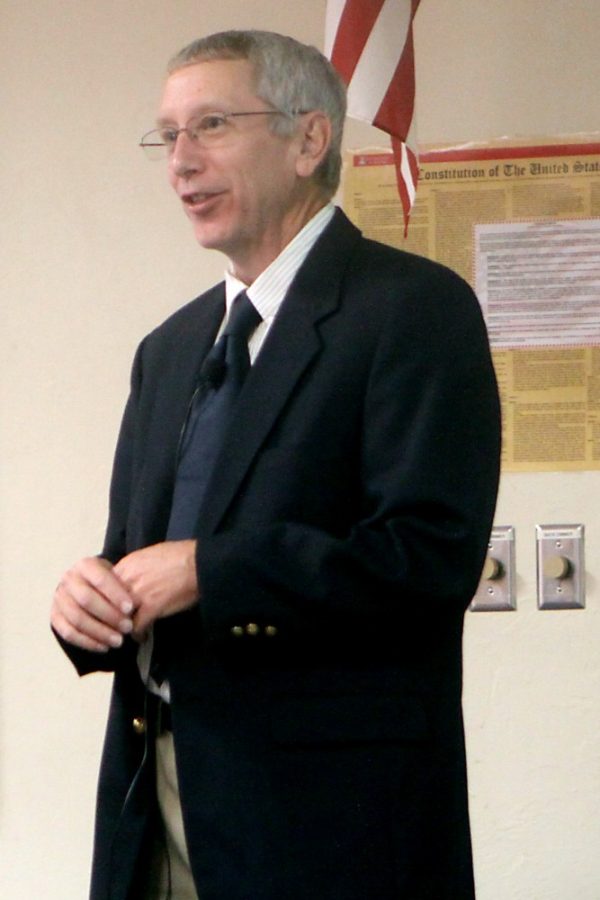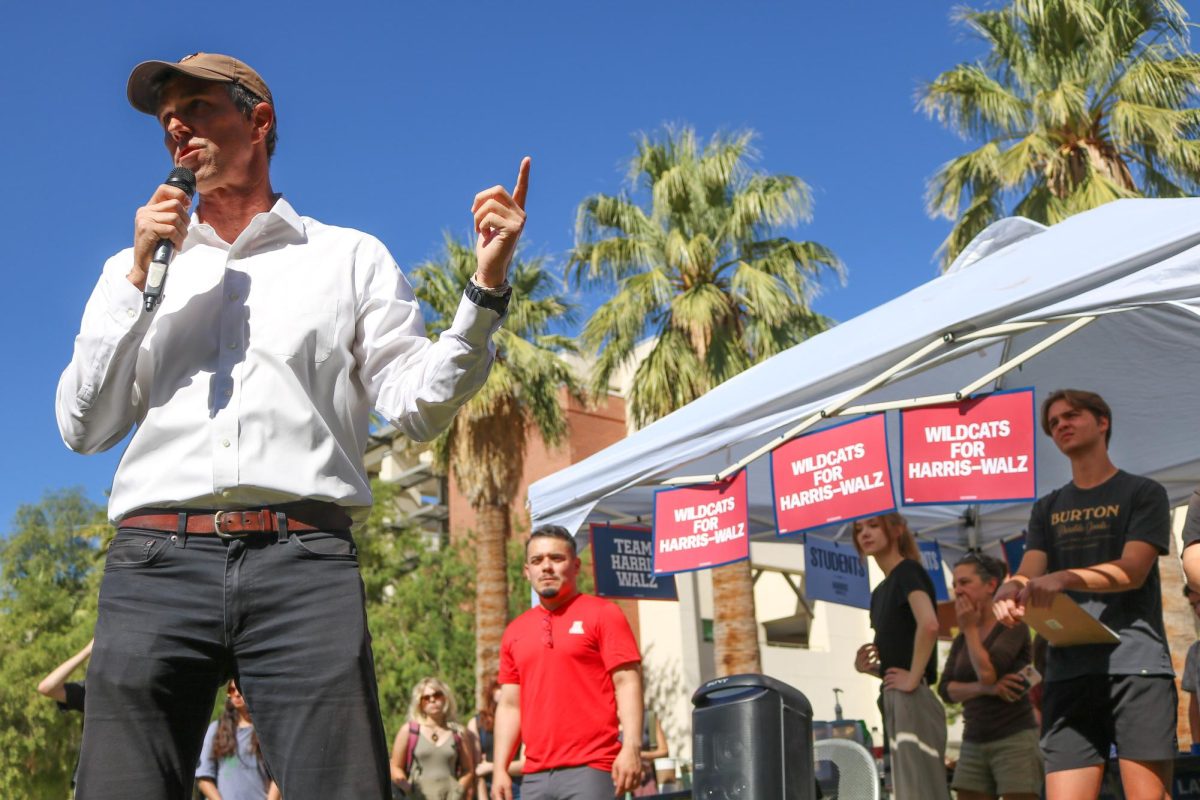A world leader in climate change research visited the UA on Wednesday to present his findings on how humans have impacted global climate change.
Ronald Stouffer, an internationally recognized climate scientist, studied the topic for more than 30 years as a federal employee, working for organizations like the Department of Commerce, Princeton University’s Geophysical Fluid Dynamics Laboratory and the National Oceanic and Atmospheric Administration. Stouffer, who works in New Jersey, uses climate models to study past, present and future climates. The presentation was co-sponsored by the UA’s Institute of the Environment, School of Earth and Environmental Sciences and Department of Geosciences.
“I’m trying to communicate to the audience what I view is what’s known and not known about climate change and how we know it, and to allow the audience to make their own judgments about what, if anything, should be done about climate change,” Stouffer said.
Stouffer chose to come to the UA after being invited by Jianjun Yin and Joellen Russell, two assistant professors in the geosciences department who both did post-doctoral research with Stouffer at Princeton.
“I wrote several papers with Ron (Stouffer) when I was at the Geophysical Fluid Dynamics Laboratory at Princeton, so we worked together for years,” Russell said. “It’s such a delight, such an honor to have him come out here. He’s one of the top three most cited climate scientists in the world.”
According to Russell, Stouffer has been cited more than 20,000 times in articles regarding climate change research.
Yin also spoke highly of Stouffer’s work.
“Ron is a leading climate scientist over the world,” Yin said. “He published many seminal papers, groundbreaking papers on climate and climate change, so we are very happy to have him here to … talk about his latest progress in this field.”
On a university level, several have said that Stouffer’s visit simply adds to the UA’s reputation as a leading institution in the field of climate change research. Jonathan Overpeck, co-director of the Institute for the Study of Planet Earth, referred to the changes happening everywhere “else in the United States outside of Alaska.”
“The University of Arizona’s got a huge commitment to helping society deal with this climate change, and that doesn’t mean telling people what to do, it means understanding the problem, what it means for the future, and coming up with choices for the decision makers,” Overpeck said. “So for us, it’s very important to get the very best people in the world on climate to visit with our people to really bring solutions to Arizona.”
The presentation discussed a range of topics, including the history of climate and weather research, how climate models work and what kind of simulations are conducted. The talk later shifted to the warming trend that the planet has been experiencing, the increasing concentration of greenhouse gases and the likelihood of it all being caused by humans.
“Human activities are likely to be the cause of warming over the last 100 years on each of the continents,” Stouffer said while referencing a report from the Intergovernmental Panel on Climate Change.
On the topic of climate change politics, Stouffer has said he is a scientist, first and foremost.
“My job, as I see it, is to inform people what the climate community knows and doesn’t know,” he said. “I believe that is part of the political process to figure out what should be done about it as a result. I tend to be very stringent in trying to communicate what’s known and not known about climate change.”
As for the importance of his research, Stouffer said climate change affects everybody, primarily in future generations.
“The decisions we make today don’t necessarily impact us directly,” he added. “Humans are the cause of a lot of the climate changes we see, and it’s an intergenerational issue. The gasoline we burn and the fuel we use to heat our houses today will be causing warming for our kids and our grandchildren through the course of their life. Climate change is something that’s going to impact the planet.”









